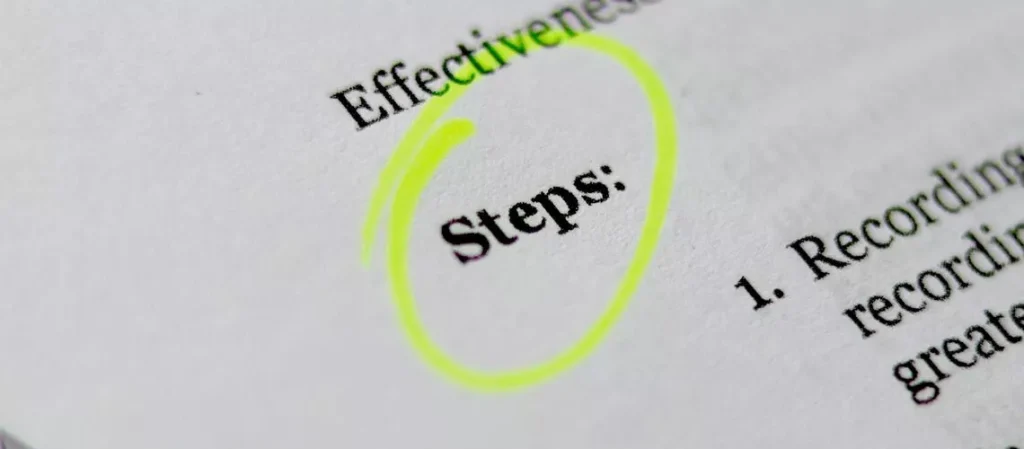Sydney's Top Property Valuers
Ask Property Valuers
Our Main Services
Residential Property Valuation
Delve into detailed valuations for residential properties, tailored to reflect precise market conditions and individual property characteristics.
Commercial Property Valuation
Navigate the intricate landscape of commercial property values with our comprehensive and meticulously researched valuation reports.
Industrial Property Valuation
Gain insights into the true value of industrial properties with our expert, in-depth analyses, and detailed reporting.
Property Settlement Valuations
Ensure fair and equitable property settlements with our precise and impartial property valuation services.
Insurance Valuation
Secure peace of mind with our accurate insurance valuations, safeguarding your assets against potential risks and uncertainties.
Capital Gains Tax Valuations
Navigate your capital gains obligations with our meticulous and reliable tax valuation services, tailored to your unique property and financial landscape.
Our Main Services
Residential:
- Houses
- Apartments
- Units
- Townhouses
Commercial:
- Office Buildings
- Retail Shops
- Shopping Centres
Industrial:
- Factories
- Warehouses
- Industrial Complexes
Special Purpose:
- Schools
- Hospitals
- Churches
Valuation Insights

How to Prepare for a Valuation: Enhancing Your Home’s Appeal
Preparing your home for a property valuation is a crucial step in the house selling process. An appealing, well-maintained home can significantly impact its assessed value. Here’s a guide to get your home ready before the valuer arrives.
Decluttering: The First Step to a Positive Impression
A clutter-free home not only looks more inviting but also appears more spacious. Before the valuation:
Clear Away Personal Items
Remove personal items and declutter rooms to present a neutral and inviting space.
Organise and Clean
Organised spaces and clean surfaces demonstrate the home’s well-kept condition.
Repairs: Boosting Your Home’s Value
Minor repairs can make a big difference in the valuation.
Address Visible Damage
Fix any visible damage like cracked tiles, leaking taps, or peeling paint.
Check Utilities
Ensure all utilities, including electrical, plumbing, and heating systems, are in good working order.
Enhancing Kerb Appeal
First impressions count. Enhance your home’s kerb appeal to make a strong initial impact.
Landscaping and Garden Maintenance
A tidy garden and well-maintained lawn reflect positively on the overall property.
External Repairs and Cleaning
Clean windows, clear gutters, and repaint or wash the exterior if necessary.
Interior Presentation
A well-presented interior can significantly influence a valuer’s assessment.
- Neutral Decor: Consider toning down any bold décor to appeal to a broader range of tastes.
- Functional Layout: Arrange furniture to showcase the functionality of each space.
- Adequate Lighting: Ensure rooms are well-lit, either naturally or with artificial lighting.
- Highlight Features: Draw attention to any unique or high-value features of your home.
Documentation: Providing Evidence of Value
Gather Important Documents
Prepare a file with relevant documents, such as proof of recent repairs, renovations, or extensions.
Provide a List of Features
Provide the valuer with a list of your home’s features, improvements, and any relevant aspects of the local area.
Preparing your home for a valuation is about showcasing its best features while ensuring it appeals to a broad market. Decluttering, making necessary repairs, enhancing kerb appeal, and presenting a well-maintained interior are key steps. Coupled with organised documentation, these efforts can positively influence the valuation outcome.

Mastering the Pre-Purchase Value Assessment of Sydney Investment Properties
Investors seeking to tap into the Sydney real estate market must understand the intricacies of investment property valuation. This process is crucial for assessing rental income potential and predicting capital growth.
The Essentials of Investment Property Valuation
Investment property valuation in Sydney involves a thorough analysis of various factors that can influence a property’s future performance.
Market Analysis and Trends
Understanding the current market trends in Sydney is vital. Investors need to consider the economic conditions, property demand, and future development plans in the area.
Property Condition and Location
The condition and location of the property are key determinants in its valuation. Properties in prime locations with good maintenance history often yield higher rental incomes and capital growth.
Analysing Rental Valuation
Rental valuation is an integral part of assessing an investment property’s worth. It provides insights into the potential rental income, which is a significant factor for investors.
Factors Affecting Rental Valuation
Several elements can affect the rental valuation of a property in Sydney:
- Local Rental Market: The demand and supply dynamics in the local rental market greatly influence rental prices.
- Property Features: Features like the number of bedrooms, bathrooms, and amenities can impact the rental valuation.
- Proximity to Amenities: Properties close to transport, schools, and shopping areas often attract higher rents.
Predicting Capital Growth
Predicting the capital growth of an investment property is a critical aspect of pre-purchase valuation.
Long-term Growth Trends
Investors should analyse long-term growth trends in Sydney, focusing on historical price movements and future projections.
Infrastructure and Development Projects
Upcoming infrastructure and development projects can significantly impact property values in the surrounding areas.
Engaging Professional Valuation Services
While investors can conduct initial analyses, engaging professional valuation services in Sydney is often advisable for a more accurate assessment.
Expert Insights and Accurate Assessments
Professional valuers provide expert insights and accurate assessments, considering all the nuanced factors that can affect a property’s value.
Legal and Compliance Aspects
They also ensure that all legal and compliance aspects are thoroughly evaluated during the valuation process.
Key Takeaways for Sydney Property Investors
For investors in Sydney’s property market, understanding the nuances of investment property valuation is crucial. It not only aids in making informed decisions but also in maximising the potential of their investment.

When To Get A New Appraisal: Key Scenarios Explained
The Significance of Timely Property Valuations
In fast-paced property markets like Sydney, values can shift considerably over short periods. An updated or new appraisal can be pivotal in many situations, ensuring that homeowners, buyers, and sellers have accurate information for decision-making.
Reasons to Consider a New Property Appraisal
1. Refinancing Your Home
When considering refinancing a mortgage, a current property valuation Sydney is often a necessity. Lenders require an up-to-date assessment of the property’s value to determine the new loan amount and terms. Especially in a city like Sydney, where property values might have surged, a new appraisal can potentially unlock better refinancing options.
2. Appealing Property Taxes
Property taxes in many jurisdictions, including Sydney, are based on the assessed value of the property. If you believe that your property’s assessed value is higher than its current market value, a new appraisal can provide the evidence needed to appeal taxes and potentially reduce your tax liability.
3. Divorce Proceedings
During a divorce, assets, including shared property, must be divided. An accurate property valuation ensures that the division is fair and equitable. In emotionally charged situations like divorces, an objective, third-party appraisal can provide clarity and facilitate smoother negotiations.
4. Estate Planning or Settlement
For estate planning or when settling an inherited property, understanding the exact value of the property is crucial. A new appraisal offers a clear picture, aiding beneficiaries in making informed decisions—whether it’s selling, renting out, or keeping the property.
Additional Circumstances Warranting a New Appraisal
- Home Improvements: After significant renovations or home improvements, a new appraisal can capture the added value to the property.
- Considering Selling: Before putting a property on the market, especially in competitive areas like Sydney, understanding its current value helps in setting a realistic and competitive listing price.
- Insurance Purposes: To ensure adequate home insurance coverage, especially after upgrades or local market changes, an updated property valuation can be instrumental.
Engaging with Property Valuation Experts
When seeking a new appraisal, especially in prominent markets like Sydney, engaging with experienced valuation experts is essential. They can provide a comprehensive and objective assessment, taking into account the unique features of the property, recent sales data, and current market trends.
Remember, while the cost of a new appraisal might seem like an added expense, the value it brings—in terms of accurate financial decision-making and potential savings—can far outweigh the initial outlay.

Sydney Property Valuation: A Comprehensive Guide
Sydney, a vibrant and dynamic metropolis, stands as one of the most sought-after property markets globally. Whether you’re a property owner, a prospective buyer, or an investor, understanding the intricacies of Sydney property valuation is pivotal. This guide sheds light on the essential facets of property valuation in Sydney, unravelling its importance, the meticulous process involved, and the multifarious criteria that underpin property value.
Significance of Property Valuation in Sydney
In a city where the property landscape is ever-evolving, property valuation emerges as a cornerstone for informed decision-making. It empowers stakeholders with precise and reliable property value assessments, facilitating:
– Optimal Pricing:
Establishing a property’s market value ensures optimal pricing, averting the pitfalls of under-pricing or overpricing.
– Informed Investments:
Accurate valuations guide investors in identifying lucrative investment opportunities and assessing risks.
– Equitable Transactions:
In transactions, valuations foster fairness and transparency, serving as a reference point for negotiations.
– Effective Management:
For property managers and owners, valuation insights aid in strategizing asset management and development.
Delving into the Property Valuation Process
The property valuation process in Sydney is a meticulous one, entailing detailed analysis and assessment. Here’s a broad overview of the steps involved:
1. Initial Consultation:
The process commences with a consultation, where the valuer understands the client’s needs and the property in focus.
2. Property Inspection:
The valuer conducts an exhaustive inspection, evaluating the property’s condition, features, and location.
3. Market Analysis:
Subsequent to the inspection, the valuer delves into market research, studying comparable sales, prevailing market conditions, and future projections.
4. Report Compilation:
The culmination of the process is the compilation of a comprehensive valuation report, delineating the property’s value and the supporting analysis.
Criteria Influencing Sydney Property Valuation
In Sydney, the valuation of a property is contingent on a spectrum of factors. The amalgamation of these criteria renders each valuation unique and multifaceted. Here’s a glimpse of the pivotal criteria in Sydney property valuation:
- Location and Surrounding Amenities: Proximity to schools, hospitals, public transport, and other amenities significantly impacts property values.
- Property Type and Design: The architectural design, layout, and type of property play a crucial role in determining its value.
- Property Condition and Age: The structural integrity and age of the property are key considerations in valuation.
- Market Dynamics: Prevailing market conditions, demand and supply dynamics, and economic factors influence property values.
- Future Developments: Anticipated developments and urbanisation in the area can affect future property values.
The Sydney Property Market Landscape
In Sydney, the property market is marked by its dynamism and resilience. A nuanced understanding of property valuation criteria and the valuation process is instrumental for navigating this vibrant market. Whether it’s leveraging valuations for optimal pricing, investment analysis, transaction equitability, or asset management, the importance of accurate and meticulous property valuation cannot be overstated.
Empowering Decisions with Precision
Sydney property valuation stands as a beacon of clarity and precision in the complex property terrain. By delving deep into the valuation process and understanding the myriad of factors affecting value, stakeholders can traverse the property landscape with informed insight and confidence, ensuring every decision is backed by comprehensive and reliable valuation data.


